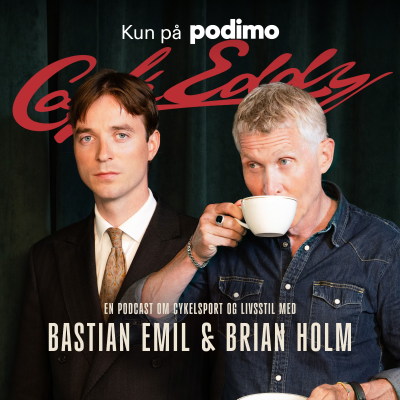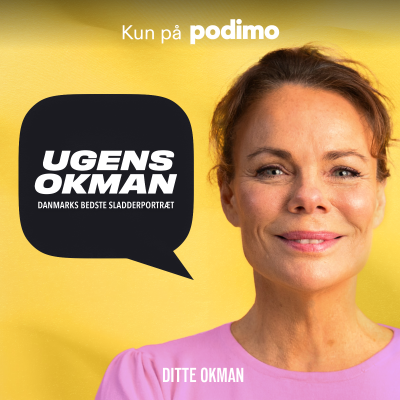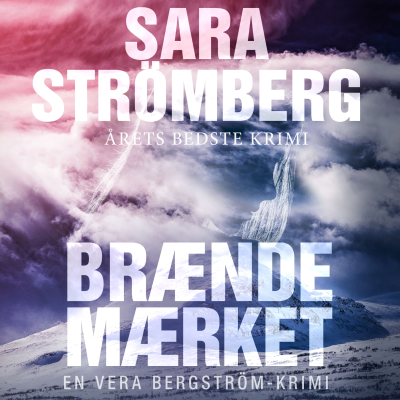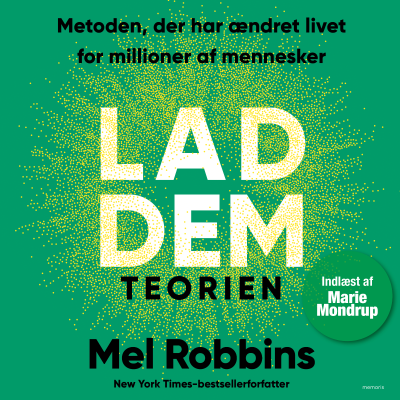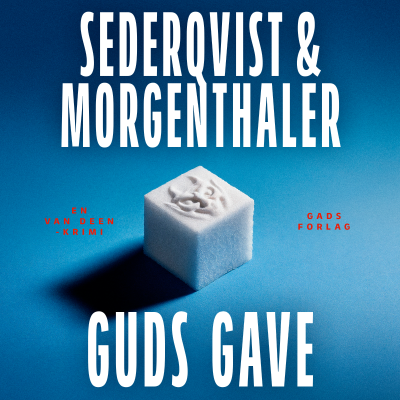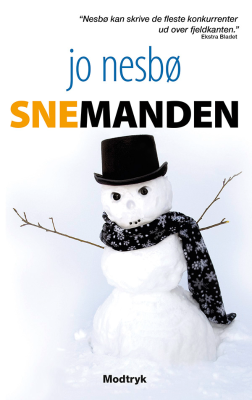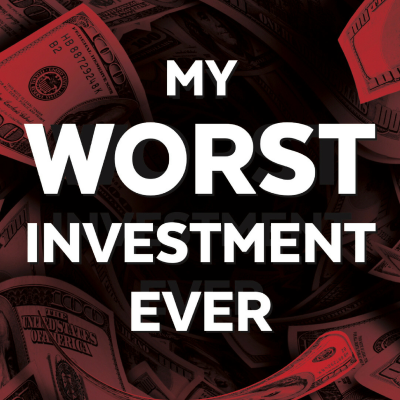
My Worst Investment Ever Podcast
engelsk
Business
Prøv gratis i 14 dage
99 kr. / måned efter prøveperioden.Opsig når som helst.
- 20 lydbogstimer pr. måned
- Podcasts kun på Podimo
- Gratis podcasts
Læs mere My Worst Investment Ever Podcast
Welcome to My Worst Investment Ever podcast hosted by Your Worst Podcast Host, Andrew Stotz, where you will hear stories of loss to keep you winning. In our community, we know that to win in investing you must take the risk, but to win big, you’ve got to reduce it. Your Worst Podcast Host, Andrew Stotz, Ph.D., CFA, is also the CEO of A. Stotz Investment Research and A. Stotz Academy, which helps people create, grow, measure, and protect their wealth. To find more stories like this, previous episodes, and resources to help you reduce your risk, visit https://myworstinvestmentever.com/
Alle episoder
907 episoderAthena Brownson – What Happens When Trust Replaces Due Diligence
BIO: Athena Brownson is a Denver realtor, investor, developer, and former professional skier whose resilience through chronic illness fuels her refined, strategic, and client-focused approach to real estate. STORY: Athena lost $130,000 in her first development project when a builder she considered a friend vanished with the upfront funds. Her trust and incomplete due diligence led to a total loss, teaching her that personal relationships can create dangerous blind spots in business. LEARNING: Due diligence is non-negotiable. Trust is a liability. > “A simple conversation with someone that we know, like, and trust is invaluable, because they can point out to us the blind spots that we may have missed in our excitement.” > Athena Brownson GUEST PROFILE Athena Brownson [https://www.linkedin.com/in/athenabrownsonrealtor/] is a Denver realtor, investor, developer, and former professional skier whose resilience through chronic illness fuels her refined, strategic, and client-focused approach to real estate. WORST INVESTMENT EVER Athena Brownson entered her first development project with confidence and a seemingly dream team. With a 45-year veteran developer—her father—by her side, she felt prepared. She had saved diligently, owned the land, and chose a builder she’d known for three years, a dear friend’s business partner. After multiple interviews where her father asked all the right questions, they felt secure. They signed a contract and paid $130,000 upfront for site clearing, asbestos abatement, and foundation work. Initial excitement turned to unease as progress was glacial. A blue fence went up, and some abatement started, but then communication stopped. Phone lines went dead. Subcontractors began calling Athena directly, asking why they hadn’t been paid. The devastating truth emerged: the builder had vanished with the funds. Athena later discovered she was one of eight victims of the same scam. Despite her real estate expertise and her father’s decades of experience, they had been outmaneuvered by a trusted contact. LESSONS LEARNED 1. Due diligence is non-negotiable: Trust is not a replacement for verification. Athena’s key takeaway was the need for exhaustive due diligence: calling not just a few references, but a comprehensive list of past and current clients to hear the unfiltered story of their experiences. 2. Friendship clouds judgment: A personal connection created a dangerous blind spot. It made her and her experienced team less likely to probe aggressively or assume the worst, a bias scammers often exploit. 3. Assume the worst, hope for the best: The mindset must shift from “I trust you until you prove me wrong” to “Show me consistent, verifiable proof that you are trustworthy.” In business, healthy skepticism is a necessary form of self-defense. 4. Measure twice, cut once: This adage applies to money and contracts. Double and triple-check every detail, every claim, and every line item before funds change hands. ANDREW’S TAKEAWAYS 1. Money is life energy: Andrew referenced the classic book Your Money or Your Life, emphasizing that money represents hours of your life traded for it. Guarding it fiercely is an act of self-preservation. 2. Trust is a liability: Stories like Athena’s and others show that misplaced trust is a common thread in catastrophic losses. Systems and verification must replace blind faith. 3. Seek counsel, not confirmation: When making big decisions, actively seek advisors who will challenge you and point out blind spots, not just those who will validate your excitement. ACTIONABLE ADVICE Athena advises investors to do these three things when vetting any partner: 1. Demand a list of 10 past and current clients/vendors and call them all. Don’t settle for 2-3 curated references. Ask specific questions about communication, budgeting, and problem-solving. 2. Before major investments, formally run the deal by a small group of mentors or experienced peers whose explicit role is to find flaws and ask the tough questions you might be avoiding. 3. Impose a mandatory 48-72 hour “cooling-off” period between agreeing to a deal and signing or funding. Use that time to conduct the extra due diligence that your initial excitement may have skipped. ATHENA’S RECOMMENDATIONS Athena’s number one recommendation is to invest in mentorship and continuous education. Whether through formal coaching, podcasts, masterclasses, or peer groups, constantly feed your knowledge. She advocates for finding a community that provides both accountability and the ability to see your own blind spots, which are invisible to you alone. For her, this approach, ingrained from her athletic career, is pivotal for professional growth and risk mitigation. NO. 1 GOAL FOR THE NEXT 12 MONTHS Athena’s number one goal for the next 12 months is to deepen her impact by building a powerful, trusted referral network. She aims to serve more clients in building long-term wealth through strategic real estate and to expand her team. A core part of this mission is to pay forward the mentorship she received by guiding younger agents, helping them avoid the costly pitfalls she endured. PARTING WORDS > “Don’t make rash decisions. Take your time and know that the right thing is going to come into place at the right time.” > Athena Brownson [spp-transcript] CONNECT WITH ATHENA BROWNSON 1. LinkedIn [https://www.linkedin.com/in/athenabrownsonrealtor/] 2. Instagram [https://www.instagram.com/athenabrownsonrealtor_/] 3. YouTube [https://www.youtube.com/@athenabrownson2044] ANDREW’S BOOKS 1. How to Start Building Your Wealth Investing in the Stock Market [https://amzn.to/3qrfHjX] 2. My Worst Investment Ever [https://amzn.to/2PDApAo] 3. 9 Valuation Mistakes and How to Avoid Them [https://amzn.to/3v6ip1Y] 4. Transform Your Business with Dr.Deming’s 14 Points [https://amzn.to/3emBO8M] ANDREW’S ONLINE PROGRAMS 1. Valuation Master Class [https://valuationmasterclass.com/] 2. The Become a Better Investor Community [https://astotz.kartra.com/page/become-a-better-investor-community] 3. How to Start Building Your Wealth Investing in the Stock Market [https://academy.astotz.com/courses/how-to-start-building-your-wealth-investing-in-the-stock-market] 4. Finance Made Ridiculously Simple [https://academy.astotz.com/courses/finance-made-ridiculously-simple] 5. FVMR Investing: Quantamental Investing Across the World [https://academy.astotz.com/courses/fvmr-investing-quantamental-investing-across-the-world] 6. Become a Great Presenter and Increase Your Influence [https://academy.astotz.com/courses/gp] 7. Transform Your Business with Dr. Deming’s 14 Points [https://academy.astotz.com/courses/transformyourbusiness] 8. Achieve Your Goals [https://academy.astotz.com/courses/achieve-your-goals] CONNECT WITH ANDREW STOTZ: 1. astotz.com [https://www.astotz.com/] 2. LinkedIn [https://www.linkedin.com/in/andrewstotz/] 3. Facebook [https://www.facebook.com/andrewstotzpage] 4. Instagram [https://www.instagram.com/andstotz/] 5. Threads [https://www.threads.net/@andstotz] 6. X [https://x.com/Andrew_Stotz] 7. YouTube [https://www.youtube.com/c/andrewstotzpage] 8. My Worst Investment Ever Podcast [https://itunes.apple.com/us/podcast/my-worst-investment-ever-podcast/id1416554991?mt=2]
Jon Ostenson – Top 10 Franchise Opportunities for 2026
BIO: Jon is the Founder and CEO of FranBridge Consulting, a 2-time Inc. 5000 company, and a leading franchise consultant. STORY: Jon believes franchising remains one of the most effective ways to build durable income, especially when investors focus on operational discipline and unit economics. He shares his top franchise categories for 2026. LEARNING: Look for businesses with repeat customers, operational discipline, proven unit economics, and leadership teams that have already made their mistakes. GUEST PROFILE Jon Ostenson [https://www.linkedin.com/in/jonostenson/] is the Founder and CEO of FranBridge Consulting [https://franbridgeconsulting.com/], a 2-time Inc. 5000 company, and he is a top 1% franchise consultant. Jon is also the author of the bestselling book, Non-Food Franchising [https://amzn.to/4pIDrzE]. Jon draws on his experience as a former Inc. 500 Franchise President and Multi-Brand Franchisee in helping his clients select their franchise investments. For many aspiring business owners, the biggest financial losses don't come from bad intentions. They come from underestimating complexity, overestimating scalability, or betting everything on an unproven idea. Jon Ostenson knows this lesson intimately. As the founder and CEO of FranBridge Consulting [https://franbridgeconsulting.com/] and franchise consultant, Jon has spent years helping entrepreneurs shortcut costly mistakes by investing in proven, non-food franchise models. In Episode 815: I Built a Million-Dollar Business That Never Made a Profit [https://myworstinvestmentever.com/ep815-jon-ostenson-i-built-a-million-dollar-business-that-never-made-a-profit/], he openly shared how he once built a million-dollar business that never made a profit. That experience now informs how he evaluates opportunities with discipline, structure, and risk control. Looking ahead to 2026, Jon believes franchising remains one of the most effective ways to build a durable income stream, especially when investors focus on operational discipline and unit economics. Below are his top franchise categories for 2026, and more importantly, why they help investors avoid the common traps that sink new businesses. WHY FRANCHISING CAN HELP INVESTORS AVOID BIG MISTAKES One of the most common investment errors is assuming passion alone will overcome operational complexity. Many entrepreneurs love an idea but underestimate the systems, staffing, pricing discipline, and capital required to make it profitable. Franchising addresses this risk by offering something rare: a business model with historical data. Instead of guessing whether pricing works or whether customers will pay, franchisees can examine real-world performance, talk to existing owners, and follow systems that have already survived market cycles, helping investors feel confident in demand-driven, structured opportunities. Jon emphasizes that franchising is not about eliminating risk. It's about trading unbounded risk for structured risk, supported by systems, training, and benchmarks. 1. COST MITIGATION CONSULTING: PROFITS WITHOUT PAYROLL Cost-mitigation franchises help small and medium-sized businesses reduce expenses by analyzing vendor contracts, utility bills, shipping costs, and other fees. Clients pay nothing up front and instead share a percentage of the savings. What makes this model compelling is its simplicity. There's no inventory, no employees required, and no large infrastructure investment. Franchisees focus on business-to-business sales while the franchisor provides analytical support and benchmarking tools. From an investment standpoint, this avoids two common mistakes: high fixed costs and overstaffing before revenue stabilizes. 2. FREIGHT BROKERAGE: LEVERAGING COLLECTIVE BUYING POWER Shipping costs remain a pain point for businesses, and freight brokerage franchises sit neatly between companies and major carriers like UPS, FedEx, and DHL. Rather than competing on price alone, franchisees act as trusted advisors, simplifying logistics and negotiating better rates using collective buying power. Technology and systems are already in place, preventing the trial-and-error phase that sinks many startups. This model rewards consultative selling skills while insulating owners from volatile commodity pricing. 3. DIGITAL BILLBOARD ADVERTISING: RECURRING LOCAL REVENUE Digital billboard franchises install advertising screens in high-traffic locations such as medical offices, oil change centers, and waiting rooms. The screens are free for host businesses, while advertisers pay for exposure. The appeal here lies in predictable recurring revenue and minimal staffing. Franchisees sell local advertising while the franchisor handles content delivery, technology, and procurement. It's a classic example of monetizing attention without carrying inventory or managing complex operations. 4. SENIOR FITNESS AND STRETCHING SERVICES: DEMOGRAPHICS AT WORK With thousands of Americans turning 65 every day, senior-focused services remain one of the strongest secular growth trends. One franchise Jon highlights provides on-site stretching and fitness programs inside senior living communities. Revenue is recurring, demand is non-discretionary, and the business directly improves quality of life. For investors, this reduces reliance on consumer whims and economic cycles. 5. HOME MOBILITY SOLUTIONS: AGING IN PLACE IS THE FUTURE Another senior-focused opportunity involves installing wheelchair ramps, stair lifts, and bathroom modifications to help seniors stay in their homes longer. Jon favors this franchise because the leadership team brings decades of industry experience, and market demand is structural rather than trendy. These services align closely with healthcare, reverse mortgages, and long-term aging trends. For investors, it's a reminder that boring, needs-based businesses often outperform exciting ideas. 6. PILATES STUDIOS: PREMIUM WELLNESS WITH PREDICTABLE REVENUE Pilates franchises continue to stand out as one of the strongest performers in the wellness space heading into 2026. Unlike trend-driven fitness concepts, Pilates benefits from longevity, broad demographic appeal, and a reputation for low-impact, high-value results. Clients range from young professionals to older adults focused on mobility, posture, and injury prevention. What makes this model attractive from an investment perspective is its membership-based recurring revenue and disciplined unit economics. Franchise systems have refined pricing, instructor certification, class capacity, and studio layout to maximise margins while maintaining quality. Jon highlights that these brands succeed not because fitness is exciting, but because their business models are structured, repeatable, and proven across multiple markets. For investors looking to avoid the mistake of underestimating operating complexity, Pilates franchises offer a clear framework for scaling without reinventing the wheel. 7. RECOVERY AND WELLNESS STUDIOS: RIDING THE LONGEVITY ECONOMY Recovery-focused wellness franchises are another category Jon believes will accelerate into 2026. These studios offer services such as cold plunges, infrared saunas, cryotherapy, compression therapy, and contrast bathing, all designed to support recovery, performance, and long-term health. Unlike traditional spas, these franchises position themselves as ongoing wellness memberships rather than one-off luxury visits. Customers come weekly, sometimes multiple times per week, creating predictable cash flow and strong client retention. Demand is driven by athletes, busy professionals, and aging consumers who prioritise longevity and preventative health. From an investment standpoint, these franchises succeed when operators follow disciplined rollout plans, resist overbuilding too quickly, and rely on franchisor-tested marketing and pricing strategies. Jon notes that many independent wellness studios fail not because the demand isn't there, but because owners misjudge costs, staffing, or market readiness, mistakes that strong franchise systems are designed to prevent. 8. MUSIC EDUCATION STUDIOS: COMMUNITY-BASED RECURRING INCOME Music lesson franchises create centralized spaces where instructors teach children and adults under a standardized curriculum. Parents are willing to invest in their children regardless of economic conditions, making this category resilient. The franchise advantage lies in marketing systems, scheduling technology, and curriculum design. Owners focus on community engagement rather than building everything from scratch. 9. TEEN DRIVING SCHOOLS: REGULATION MEETS OPPORTUNITY In many US states, formal driver education is required for teens to obtain a driver's license. Yet the market remains fragmented and unsophisticated. Franchised teen driving schools offer standardized training, vetted instructors, and strong brand trust. For parents, safety matters. For investors, regulation-backed demand provides stability. 10. PROPERTY SERVICES: FLOORING AND JUNK HAULING REINVENTED Jon closes his list with two property services franchises that stand out due to operational innovation. One refinishes hardwood floors in a single day without sanding. The other reimagines junk hauling by charging by weight rather than volume, dramatically improving margins. These businesses benefit from strong cash flow, fragmented competition, and clear differentiation. They also attract private equity interest, which supports higher exit multiples down the road. THE BIGGER LESSON: AVOIDING THE SAME INVESTMENT MISTAKES Across all ten opportunities, Jon's philosophy is consistent: 1. Don't chase novelty. 2. Don't underestimate complexity. 3. Don't assume growth equals profit. Instead, look for businesses with repeat customers, operational discipline, proven unit economics, and leadership teams that have already made their mistakes. Franchising doesn't guarantee success, but it dramatically improves the odds by replacing guesswork with structure. FINAL THOUGHT If there's one lesson Jon Ostenson's journey reinforces, it's this: the most expensive investment mistakes usually come from building alone. Learning from others' failures, using proven systems, and choosing businesses with real demand can mean the difference between surviving and thriving in 2026 and beyond. [spp-transcript] CONNECT WITH JON OSTENSON 1. LinkedIn [https://www.linkedin.com/in/jonostenson/] 2. X [https://x.com/Jon_Ostenson] 3. Facebook [https://www.facebook.com/JonOstenson1/] 4. YouTube [https://www.youtube.com/@JonOstensonFBC] 5. Book [https://amzn.to/4pIDrzE] 6. Website [https://franbridgeconsulting.com/] ANDREW’S BOOKS 1. How to Start Building Your Wealth Investing in the Stock Market [https://amzn.to/3qrfHjX] 2. My Worst Investment Ever [https://amzn.to/2PDApAo] 3. 9 Valuation Mistakes and How to Avoid Them [https://amzn.to/3v6ip1Y] 4. Transform Your Business with Dr.Deming’s 14 Points [https://amzn.to/3emBO8M] ANDREW’S ONLINE PROGRAMS 1. Valuation Master Class [https://valuationmasterclass.com/] 2. The Become a Better Investor Community [https://astotz.kartra.com/page/become-a-better-investor-community] 3. How to Start Building Your Wealth Investing in the Stock Market [https://academy.astotz.com/courses/how-to-start-building-your-wealth-investing-in-the-stock-market] 4. Finance Made Ridiculously Simple [https://academy.astotz.com/courses/finance-made-ridiculously-simple] 5. FVMR Investing: Quantamental Investing Across the World [https://academy.astotz.com/courses/fvmr-investing-quantamental-investing-across-the-world] 6. Become a Great Presenter and Increase Your Influence [https://academy.astotz.com/courses/gp] 7. Transform Your Business with Dr. Deming’s 14 Points [https://academy.astotz.com/courses/transformyourbusiness] 8. Achieve Your Goals [https://academy.astotz.com/courses/achieve-your-goals] CONNECT WITH ANDREW STOTZ: 1. astotz.com [https://www.astotz.com/] 2. LinkedIn [https://www.linkedin.com/in/andrewstotz/] 3. Facebook [https://www.facebook.com/andrewstotzpage] 4. Instagram [https://www.instagram.com/andstotz/] 5. Threads [https://www.threads.net/@andstotz] 6. X [https://twitter.com/Andrew_Stotz] 7. YouTube [https://www.youtube.com/c/andrewstotzpage] 8. My Worst Investment Ever Podcast [https://itunes.apple.com/us/podcast/my-worst-investment-ever-podcast/id1416554991?mt=2]
David Siegel – A Smart Idea Nobody Wanted
BIO: David Siegel is a Silicon Valley entrepreneur who has founded more than a dozen companies. He has written five books on technology and business, was once a candidate for the dean of Stanford Business School, and is now an AI thought leader leading an AI startup he hopes will pave the way for the agentic economy. STORY: David invested heavily in launching a longevity coaching business, believing people would pay to extend their lives through lifestyle change. Despite strong science, personal results, and significant marketing spend, demand proved nearly nonexistent. LEARNING: A great idea without real demand is still a bad investment. > “There will be many new problems, and whenever there are new problems, there’s a new economic opportunity for many people.” > David Siegel GUEST PROFILE David Siegel [https://www.linkedin.com/in/david-siegel-9786582a7/] is a Silicon Valley entrepreneur who has founded more than a dozen companies. He has written five books on technology and business, was once a candidate for the dean of Stanford Business School, and is now an AI thought leader leading an AI startup he hopes will pave the way for the agentic economy. WORST INVESTMENT EVER After years of building companies and studying major technological shifts, David found himself pulled deeply into the longevity movement. This wasn’t casual curiosity. He read more than 20 books, radically transformed his lifestyle, and developed a deep understanding of insulin resistance, nutrition, exercise, and long-term health. The results were personal and visible. David was fit, disciplined, and energized. The idea that science could help people live 10 to 15 years longer, with a higher quality of life, felt not only possible but urgent. Helping others do the same seemed like a natural next chapter. TURNING PASSION INTO A BUSINESS Confident in both the science and his own experience, David decided to turn longevity coaching into a scalable business. His target audience was people in their 50s and 60s, individuals who were pre-diabetic or heading toward serious health issues and stood to benefit the most from early intervention. He approached the venture like a seasoned entrepreneur. He built funnels, ran Facebook ads, spoke at retirement communities, and spent months on discovery calls explaining how lifestyle changes could dramatically reduce the risk of cancer, Alzheimer’s, and diabetes. This wasn’t guesswork; it was disciplined execution. THE PAINFUL REALITY CHECK Then reality set in. Despite spending over $100,000 on advertising and investing countless hours in conversations, demand was almost nonexistent. People listened. They nodded. They agreed the logic made sense. Then they walked away. Many believed the healthcare system would save them. Others hoped for a pill instead of discipline. Even those clearly facing insulin resistance weren’t willing to make sustained lifestyle changes. The most sobering realization wasn’t about marketing or pricing. It was this: most people don’t actually want to live longer if it requires consistent effort. ACCEPTING THE LOSS In the end, only about one percent of the people David spoke to were already doing the work and didn’t need coaching. Everyone else opted out, fully aware of the consequences. The investment failed not because the science was wrong, but because the market wasn’t there. David ultimately gave the information away for free and walked away from the business, having learned an expensive but clarifying lesson about belief versus demand. LESSONS LEARNED 1. Even the most compelling solution will fail if it requires behavior that people are unwilling to change. 2. Logic, evidence, and outcomes don’t matter if the market emotionally resists effort. 3. A great idea without real demand is still a bad investment. ANDREW’S TAKEAWAYS 1. Andrew highlights that people consistently search for shortcuts rather than long-term solutions. Whether in health or investing, most people prefer convenience over discipline, even when the stakes are life-altering. ACTIONABLE ADVICE Before scaling any idea, test for real demand, not polite interest. Ask whether people are willing to pay, change their habits, and put in effort. If behavior change is central to your offering, validate that reality early or risk learning the hard way. DAVID’S RECOMMENDATIONS David encourages understanding your own health data, particularly insulin resistance, through proper testing, such as an oral glucose tolerance test. While the business failed, the knowledge remains powerful and freely available for those willing to act. PARTING WORDS > “Keep looking for new problems that didn’t exist six months ago and jump in after them.” > David Siegel [spp-transcript] CONNECT WITH DAVID SIEGEL 1. LinkedIn [https://www.linkedin.com/in/david-siegel-9786582a7/] 2. X [https://x.com/PullNews] 3. YouTube [https://www.youtube.com/@redshiftlabsonyoutube] 4. Website [https://www.redshiftlabs.io/reset] ANDREW’S BOOKS 1. How to Start Building Your Wealth Investing in the Stock Market [https://amzn.to/3qrfHjX] 2. My Worst Investment Ever [https://amzn.to/2PDApAo] 3. 9 Valuation Mistakes and How to Avoid Them [https://amzn.to/3v6ip1Y] 4. Transform Your Business with Dr.Deming’s 14 Points [https://amzn.to/3emBO8M] ANDREW’S ONLINE PROGRAMS 1. Valuation Master Class [https://valuationmasterclass.com/] 2. The Become a Better Investor Community [https://astotz.kartra.com/page/become-a-better-investor-community] 3. How to Start Building Your Wealth Investing in the Stock Market [https://academy.astotz.com/courses/how-to-start-building-your-wealth-investing-in-the-stock-market] 4. Finance Made Ridiculously Simple [https://academy.astotz.com/courses/finance-made-ridiculously-simple] 5. FVMR Investing: Quantamental Investing Across the World [https://academy.astotz.com/courses/fvmr-investing-quantamental-investing-across-the-world] 6. Become a Great Presenter and Increase Your Influence [https://academy.astotz.com/courses/gp] 7. Transform Your Business with Dr. Deming’s 14 Points [https://academy.astotz.com/courses/transformyourbusiness] 8. Achieve Your Goals [https://academy.astotz.com/courses/achieve-your-goals] CONNECT WITH ANDREW STOTZ: 1. astotz.com [https://www.astotz.com/] 2. LinkedIn [https://www.linkedin.com/in/andrewstotz/] 3. Facebook [https://www.facebook.com/andrewstotzpage] 4. Instagram [https://www.instagram.com/andstotz/] 5. Threads [https://www.threads.net/@andstotz] 6. X [https://twitter.com/Andrew_Stotz] 7. YouTube [https://www.youtube.com/c/andrewstotzpage] 8. My Worst Investment Ever Podcast [https://itunes.apple.com/us/podcast/my-worst-investment-ever-podcast/id1416554991?mt=2]
Jon Ostenson – I Built a Million-Dollar Business That Never Made a Profit
BIO: Jon is the Founder and CEO of FranBridge Consulting, a 2-time Inc. 5000 company, and he is a top 1% franchise consultant. STORY: Jon co-founded a marketing and call-center business that appeared successful on the surface, growing to millions in revenue and dozens of employees. However, excessive customization and an inability to charge prices that matched rising costs meant the business never became sustainably profitable. LEARNING: Profitability is oxygen. Knowing when to admit you’re wrong matters just as much as knowing how to start. > “Humble yourself and admit when you’re wrong, course correct, and pivot.” > Jon Ostenson GUEST PROFILE Jon Ostenson [https://www.linkedin.com/in/jonostenson/] is the Founder and CEO of FranBridge Consulting [https://franbridgeconsulting.com/], a 2-time Inc. 5000 company, and he is a top 1% franchise consultant. Jon is also the author of the bestselling book, Non-Food Franchising [https://franbridgeconsulting.com/#contact]. Jon draws on his experience as a former Inc. 500 Franchise President and Multi-Brand Franchisee in helping his clients select their franchise investments. WORST INVESTMENT EVER Leaving the corporate world felt like freedom. After years of structure, predictability, and steady paychecks, you finally get to build something of your own. That was precisely where Jon found himself: grateful for his corporate experience, energized by the idea of business ownership, and eager to prove he could create something meaningful on his own terms. A PROMISING PARTNERSHIP AND A COMPELLING BUSINESS VISION Shortly after leaving corporate life, Jon partnered with a colleague to launch a marketing and sales company. He owned 60 percent of the business and ran day-to-day operations, while his partner held the remaining 40 percent. The vision was compelling. The company would help franchise businesses grow by handling their marketing, answering inbound calls through an in-house call center, and booking appointments directly for clients. The promise was simple: make the phones ring and convert those calls into revenue. EARLY MOMENTUM AND THE ILLUSION OF SUCCESS At first, it worked. The business grew quickly, attracting a strong leadership team and building a culture Jon was proud of. With around 35 employees and annual revenues of $3 million to $4 million, the company appeared successful from the outside. The team was energized, clients were signing on, and the pace was exciting. WHEN GROWTH DIDN’T TRANSLATE INTO PROFIT But beneath the surface, there was a quiet, persistent problem. The business wasn’t profitable. Despite all the effort, the long hours, and the constant tweaking, the company hovered around breakeven. Some months it lost money. Others it barely scraped by. Payroll was always looming, and profitability felt just out of reach. Jon tried adjusting pricing, shifting emphasis between marketing and call center services, and introducing new technology to increase value. But every fix only delayed the inevitable question he didn’t want to answer: What if the model itself was broken? THE HIDDEN COST OF CUSTOMIZATION AND COMPLEXITY The core issue turned out to be customization. The business was designed to scale by serving franchise systems with repeatable processes. Instead, each franchisee insisted their market was different, their staff was unique, and their customers required special handling. Wanting to please early clients and drive revenue, Jon said yes. Again and again. Over time, the company became highly customized, operationally complex, and increasingly expensive to run. Pricing no longer matched costs. The more the business grew, the harder it became to make money. What looked like top-line success was masking a model that couldn’t sustain itself. THE HARD DECISION TO WALK AWAY WITH INTEGRITY Eventually, Jon made the difficult decision to wind down the business. There was no dramatic exit or acquisition, but there was integrity. The team helped place employees in new roles and transitioned clients responsibly. Still, it was a painful experience. The failure wasn’t just financial; it was an ego hit. This was Jon’s first true experience of business ownership, and letting it go meant admitting that the original idea wasn’t as strong as he believed. LESSONS LEARNED 1. The biggest lesson came from contrast. After running his own startup without a proven product-market fit, Jon developed a deep appreciation for franchising. Unlike a startup built on assumptions, franchises offer historical data, real performance benchmarks, and access to owners who have already walked the path. You can see results before you ever invest. 2. There were personal lessons, too. Knowing when to admit you’re wrong matters just as much as knowing how to start. Humility, course correction, and the willingness to pivot are not weaknesses in entrepreneurship; they’re survival skills. 3. Profitability, Jon learned, is oxygen. A business that can’t consistently operate in the black eventually suffocates, no matter how exciting the vision or how talented the team. ANDREW’S TAKEAWAYS 1. One of the most important disciplines for any business owner is accurately closing the books each month. That means reviewing not just the profit and loss statement, but also the balance sheet. If your accountant can’t do that, it’s time for a new one. Monthly financial clarity allows you to identify problems early, before they become fatal. 2. Another insight comes from scale. Based on analysis of tens of thousands of companies globally, Andrew points to $7.5 million in annual revenue as a critical threshold. Below that level, it’s tough to afford the management talent and infrastructure required to run a scalable business. If you can’t get there efficiently, it may be time to rethink the model. 3. Finally, complexity is the silent killer. Businesses naturally drift toward offering more products, more services, and more custom solutions. Every added layer increases costs and erodes margins. Only disciplined leadership can stop complexity from overwhelming profitability. ACTIONABLE ADVICE If you’re building a business, be honest about whether you’re chasing revenue or building something scalable. Early customization can help you survive, but staying there too long can trap you in a low-margin cycle that’s hard to escape. Focus on creating profitable top-line growth, not just growth for its own sake. Learn to say no, even when opportunities feel exciting. And remember: there is no perfect time to start a business. The best way to learn is to get in the game early, without betting everything, and build experience that you can compound over time. JON’S RECOMMENDATIONS Jon recommends starting with education and proven frameworks. He offers a free downloadable copy of his book, Non-Food Franchising [https://franbridgeconsulting.com/#contact], in a concise 90-page guide. The book has received strong feedback and provides practical insights for anyone considering business ownership. Listeners can download the PDF or audio version by visiting FranBridgeConsulting.com [http://franbridgeconsulting.com] and sharing their email address. Those who prefer a physical copy can purchase it on Amazon [https://amzn.to/4pIDrzE], with all proceeds supporting Hope International. NO.1 GOAL FOR THE NEXT 12 MONTHS Jon’s goal for the next 12 months is to grow passive income across multiple asset classes, including franchising. His goal is to build sustainable revenue streams that create freedom across all areas of life: faith, family, fitness, finances, and future ventures. Passive income, for Jon, isn’t just about money. It’s about capacity—the ability to choose how you spend your time and energy. PARTING WORDS > “There’s never a good time to start a business. Get off the couch, dip your toe in the water, read our book, get in the game, and start thinking about it.” > Jon Ostenson [spp-transcript] CONNECT WITH JON OSTENSON 1. LinkedIn [https://www.linkedin.com/in/jonostenson/] 2. Twitter [https://x.com/Jon_Ostenson] 3. Facebook [https://www.facebook.com/JonOstenson1/] 4. YouTube [https://www.youtube.com/@JonOstensonFBC] 5. Book [https://amzn.to/4pIDrzE] 6. Website [https://franbridgeconsulting.com/] ANDREW’S BOOKS 1. How to Start Building Your Wealth Investing in the Stock Market [https://amzn.to/3qrfHjX] 2. My Worst Investment Ever [https://amzn.to/2PDApAo] 3. 9 Valuation Mistakes and How to Avoid Them [https://amzn.to/3v6ip1Y] 4. Transform Your Business with Dr.Deming’s 14 Points [https://amzn.to/3emBO8M] ANDREW’S ONLINE PROGRAMS 1. Valuation Master Class [https://valuationmasterclass.com/] 2. The Become a Better Investor Community [https://astotz.kartra.com/page/become-a-better-investor-community] 3. How to Start Building Your Wealth Investing in the Stock Market [https://academy.astotz.com/courses/how-to-start-building-your-wealth-investing-in-the-stock-market] 4. Finance Made Ridiculously Simple [https://academy.astotz.com/courses/finance-made-ridiculously-simple] 5. FVMR Investing: Quantamental Investing Across the World [https://academy.astotz.com/courses/fvmr-investing-quantamental-investing-across-the-world] 6. Become a Great Presenter and Increase Your Influence [https://academy.astotz.com/courses/gp] 7. Transform Your Business with Dr. Deming’s 14 Points [https://academy.astotz.com/courses/transformyourbusiness] 8. Achieve Your Goals [https://academy.astotz.com/courses/achieve-your-goals] CONNECT WITH ANDREW STOTZ: 1. astotz.com [https://www.astotz.com/] 2. LinkedIn [https://www.linkedin.com/in/andrewstotz/] 3. Facebook [https://www.facebook.com/andrewstotzpage] 4. Instagram [https://www.instagram.com/andstotz/] 5. Threads [https://www.threads.net/@andstotz] 6. X [https://twitter.com/Andrew_Stotz] 7. YouTube [https://www.youtube.com/c/andrewstotzpage] 8. My Worst Investment Ever Podcast [https://itunes.apple.com/us/podcast/my-worst-investment-ever-podcast/id1416554991?mt=2]
Edwin Endlich – Early Doesn't Always Mean Right
BIO: Edwin Endlich is the Chief Marketing Officer of Wysh and President of the National Alliance for Financial Literacy and Inclusion. STORY: Edwin’s worst investment was buying Tilray stock at $143 during the early hype of legal cannabis investing. Swept up in the excitement of a “new frontier,” he held on as the price crashed—eventually selling at around 30 cents and losing over 99% of his investment. LEARNING: The fundamentals always apply, even in new or exciting industries. Don’t let hype replace due diligence. > “We’re in this AI conversation, let’s not forget the fundamentals of the market. Learn from what has happened in this space before. And don’t get too cocky.” > Edwin Endlich GUEST PROFILE Edwin Endlich [https://www.linkedin.com/in/edwinendlich/] is the Chief Marketing Officer of Wysh [https://www.wysh.com/] and President of the National Alliance for Financial Literacy and Inclusion [https://www.nafli.org/]. Edwin has spent his career at the intersection of marketing, fintech, and AI, helping financial institutions tell more human stories in an increasingly digital world. He’s passionate about making financial protection simple, accessible, and even a little more fun — proving you don’t need buzzwords or hype to make banking and technology relevant. WORST INVESTMENT EVER There’s nothing quite like the rush of feeling early—early to a trend, early to a movement, early to a once-in-a-lifetime opportunity. That’s precisely what Edwin felt in 2015–2016, when investing in legal cannabis became possible in parts of the United States. For the first time, regular people could invest in a newly legalized industry. It felt like history happening in real time, a frontier market ready to explode. Edwin and his friends didn’t want to miss out, especially when companies were going public, and their share prices seemed destined to skyrocket. One of those stocks was Tilray. At $143 a share, Edwin was convinced he was buying the future. He imagined stock splits, booming demand, and a cannabis empire rising from the ground floor. Instead, he watched that $143 tumble month after month, until he finally sold it for around 30 cents. The emotional rollercoaster of hope, disappointment, and finally acceptance was a journey Edwin will never forget. A 99.3% loss. He now calls it his worst investment—not just because of the financial hit, but because of how powerfully excitement and hype clouded his judgment. LESSONS LEARNED * Every investor thinks their situation is unique. But in reality, the same patterns repeat again and again. * Markets take time to mature. * Regulation can shift overnight. * Early doesn’t always mean right. * Excitement is not a strategy. ANDREW’S TAKEAWAYS * A portfolio isn’t just about diversification by industry or geography; it’s also about diversifying across stages of maturity. * Stable, well-regulated companies like Coca-Cola or Pepsi behave very differently from early-stage, hype-driven industries, such as the cannabis sector. * Even large companies, with teams of top analysts, often get it wrong. ACTIONABLE ADVICE If Edwin could offer one piece of advice to anyone starry-eyed over the next big thing, it would be this: Do your due diligence. Seriously. Before you invest in anything—especially something exciting, futuristic, or rapidly trending—slow down and ask: * Has this been done before? * What can I learn from past bubbles? * What does history say about similar innovations? * Am I investing in fundamentals—or feelings? Whether it’s cannabis in 2016 or AI in 2024, the pattern is the same. Booms become bubbles. Investors overestimate how fast an industry will mature. And emotion often wins over discipline. But with the right mindset and discipline, you can avoid these pitfalls. EDWIN’S RECOMMENDATIONS Edwin encourages people to empower themselves with real financial knowledge. That’s why he co-founded the National Alliance for Financial Literacy and Inclusion (NAFLI) [https://www.nafli.org/]—a nonprofit dedicated to helping individuals understand money, investing, and financial products. Whether you’re new to investing or leading a financial institution, NAFLI offers education, tools, and resources to help individuals make more informed financial decisions. NO.1 GOAL FOR THE NEXT 12 MONTHS Edwin’s goal for the next 12 months is to have a full, uninterrupted conversation with his daughter, one that lasts longer than 10 minutes and isn’t broken by phones, notifications, or distractions. Edwin wants to rebuild community and presence—starting at home. PARTING WORDS > “Stay focused and look to the past.” > Edwin Endlich [spp-transcript] CONNECT WITH EDWIN ENDLICH * LinkedIn [https://www.linkedin.com/in/edwinendlich/] * Website [https://www.wysh.com/] ANDREW’S BOOKS * How to Start Building Your Wealth Investing in the Stock Market [https://amzn.to/3qrfHjX] * My Worst Investment Ever [https://amzn.to/2PDApAo] * 9 Valuation Mistakes and How to Avoid Them [https://amzn.to/3v6ip1Y] * Transform Your Business with Dr.Deming’s 14 Points [https://amzn.to/3emBO8M] ANDREW’S ONLINE PROGRAMS * Valuation Master Class [https://valuationmasterclass.com/] * The Become a Better Investor Community [https://astotz.kartra.com/page/become-a-better-investor-community] * How to Start Building Your Wealth Investing in the Stock Market [https://academy.astotz.com/courses/how-to-start-building-your-wealth-investing-in-the-stock-market] * Finance Made Ridiculously Simple [https://academy.astotz.com/courses/finance-made-ridiculously-simple] * FVMR Investing: Quantamental Investing Across the World [https://academy.astotz.com/courses/fvmr-investing-quantamental-investing-across-the-world] * Become a Great Presenter and Increase Your Influence [https://academy.astotz.com/courses/gp] * Transform Your Business with Dr. Deming’s 14 Points [https://academy.astotz.com/courses/transformyourbusiness] * Achieve Your Goals [https://academy.astotz.com/courses/achieve-your-goals] CONNECT WITH ANDREW STOTZ: * astotz.com [https://www.astotz.com/] * LinkedIn [https://www.linkedin.com/in/andrewstotz/] * Facebook [https://www.facebook.com/andrewstotzpage] * Instagram [https://www.instagram.com/andstotz/] * Threads [https://www.threads.net/@andstotz] * X [https://twitter.com/Andrew_Stotz] * YouTube [https://www.youtube.com/c/andrewstotzpage] * My Worst Investment Ever Podcast [https://itunes.apple.com/us/podcast/my-worst-investment-ever-podcast/id1416554991?mt=2]
Vælg dit abonnement
Premium
20 timers lydbøger
Podcasts kun på Podimo
Gratis podcasts
Opsig når som helst
Prøv gratis i 14 dage
Derefter 99 kr. / måned
Premium Plus
100 timers lydbøger
Podcasts kun på Podimo
Gratis podcasts
Opsig når som helst
Prøv gratis i 7 dage
Derefter 129 kr. / måned
Prøv gratis i 14 dage. 99 kr. / måned efter prøveperioden. Opsig når som helst.




















